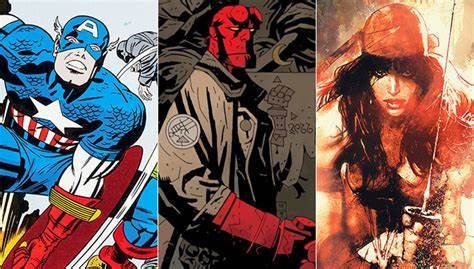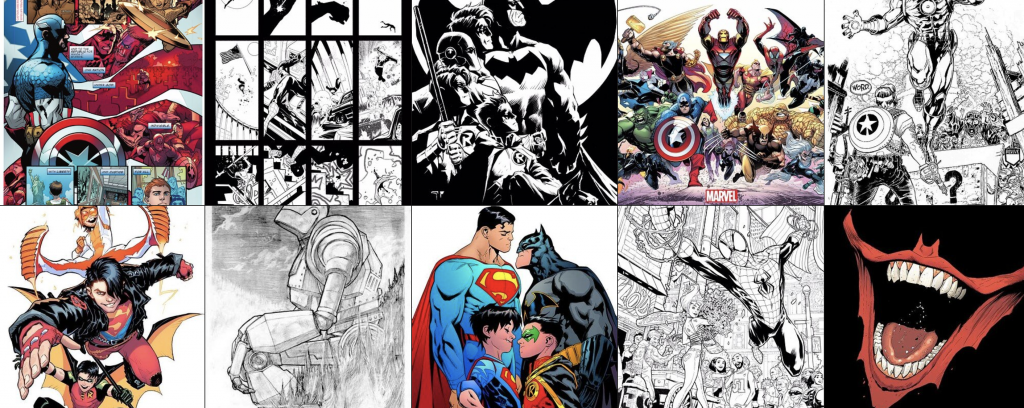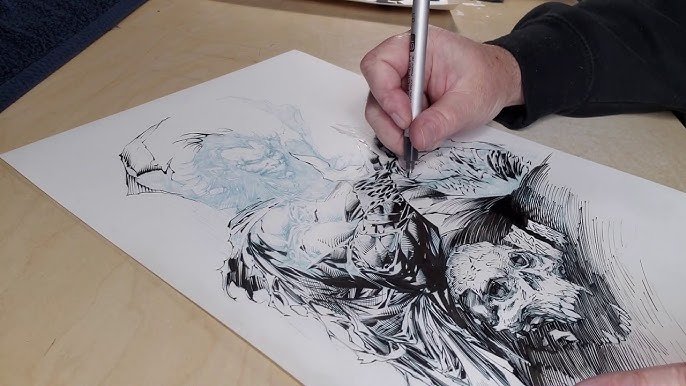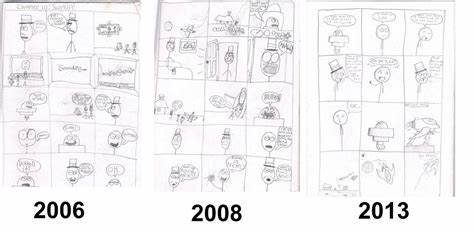The comic book industry owes much of its success to talented artists who brought characters and stories to life through their unique styles. These visionary creators redefined visual storytelling, set trends, and left an indelible mark on pop culture. Here are some of the top comic book artists who revolutionized the industry.
1. Jack Kirby – The King of Comics
Jack Kirby is often referred to as the “King of Comics” for his groundbreaking contributions to the medium.
- Notable Works: Fantastic Four, The Avengers, X-Men
- Legacy: Kirby’s dynamic art style, characterized by bold lines and imaginative designs, defined the Marvel Universe. His creativity and storytelling influenced countless artists.
2. Steve Ditko – The Mind Behind Spider-Man
Steve Ditko’s intricate and surreal style brought some of Marvel’s most beloved characters to life.
- Famous Creations: Spider-Man, Doctor Strange
- Impact: Ditko’s work on Doctor Strange introduced mind-bending visuals that remain iconic. His detailed cityscapes and expressive characters set new standards for realism in comics.
3. Frank Miller – The Dark Knight’s Renaissance
Frank Miller revolutionized comics with his gritty, noir-inspired artwork and storytelling.
- Renowned Works: The Dark Knight Returns, Sin City, 300
- Industry Contribution: Miller’s dark, atmospheric style and mature narratives redefined superhero comics and proved the medium could tackle serious themes.
4. Jim Lee – Master of Modern Superheroes
Jim Lee is celebrated for his sleek, highly detailed art that brought new life to classic characters.
- Iconic Titles: X-Men, Batman: Hush, Justice League
- Influence: Lee’s work reimagined superheroes for a modern audience, combining dynamic poses with intricate designs. His style remains a benchmark for contemporary comic art.
5. Will Eisner – Pioneer of the Graphic Novel
Will Eisner is a legend whose work elevated comics to an art form.
- Famous Works: The Spirit, A Contract with God
- Legacy: Eisner introduced cinematic techniques in panel layout and storytelling. His contributions helped establish graphic novels as a respected literary medium.
6. Todd McFarlane – Creator of Spawn
Todd McFarlane’s innovative and hyper-detailed style redefined comic book aesthetics in the 1990s.
- Notable Titles: Spawn, The Amazing Spider-Man
- Impact: McFarlane co-founded Image Comics, giving artists greater creative control. His work on Spider-Man featured groundbreaking designs that reimagined the character’s movement and webbing.
7. Alex Ross – The Painter of Heroes
Alex Ross brought a fine-art approach to comics, creating stunningly realistic portrayals of iconic characters.
- Key Works: Kingdom Come, Marvels
- Artistic Style: Ross’s painted illustrations blur the line between comics and fine art, offering a timeless and cinematic quality to his work.
8. Neal Adams – A Champion of Realism
Neal Adams is known for his dynamic realism and advocacy for creators’ rights.
- Famous Titles: Batman, Green Lantern/Green Arrow
- Contribution: Adams’ realistic anatomy and dramatic compositions modernized superhero comics. His advocacy helped creators gain recognition and rights over their work.

9. Jean Giraud (Moebius) – The Visionary of Sci-Fi
Moebius’ surreal and imaginative style revolutionized the way science fiction is depicted in comics.
- Notable Works: The Incal, Silver Surfer: Parable
- Legacy: His intricate and otherworldly designs influenced both comics and film, leaving a lasting impact on visual storytelling.
10. George Pérez – The Architect of Epic Crossovers
George Pérez is celebrated for his ability to handle complex, character-filled narratives with precision and flair.
- Famous Works: Crisis on Infinite Earths, The Infinity Gauntlet
- Impact: Pérez’s detailed and dynamic illustrations set the standard for epic crossover events, influencing how large-scale stories are visualized.










